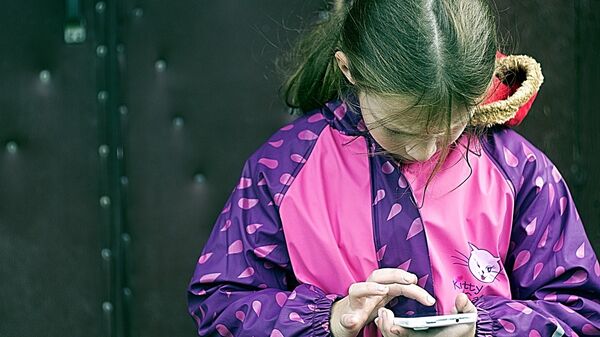Professor Eivor Oborn from the Warwick Business School at the University of Warwick believes that such an application could be a way to get out of lockdown and start getting back to normality.
Sputnik: How would an app like this work? How critical could an app be in flattening the curve?
Eivor Oborn: I don't think the app is presented as a tool that would necessarily flatten the curve. If we're staying indoors under lockdown conditions that really is the fastest possible way to flatten the curve and so as long as we have an uncontrolled pandemic around in the community - the best way to flatten the curve is to stay indoors. So the purpose of the app is really to use as an exit strategy. If we start to get the number of infections in the community down and if we have mass testing also, then it's a way for us to get out of our lockdown conditions and start getting back to normality without getting another spike in the curve. Once we're in a spike it's less helpful, but once we get the curve down then it can help us stay down.
Sputnik: Would people be motivated to download something like this app or software which would have their movements tracked constantly to reach that conclusion or end goal that you just mentioned?
Eivor Oborn: I think it really depends on how the app is presented as being used and what kind of restrictions might be placed around it. An app is just a tool, but you can use that tool in many ways in practice. The way it's used in one country can be quite different from another country. It doesn't actually track us necessarily that differently from the way a Google Maps device on our cell phone tracks us as we drive or as a navigation tool to find our way from destination A to B, if we're walking about in London or Edinburgh. So we're often being tracked anyway and mobile companies, telecom companies, have data tracking our telephones all the time anyway. So, certain companies already have that data. I think if the app was put in place in such a way where it enabled people to get out of lockdown in a sensible fashion, then I do think that people would be willing to use it. We don't have to have everybody using it, but a large proportion of people would make it more effective.
Sputnik: Is it likely that tracking systems will be maintained after the virus has been controlled? Could these apps be beneficial in the future?
Eivor Oborn: I really think the question depends on how it's used. I think for people who have loved ones who are at high risk, I think people who have relatives or family members who are working in the NHS and seeing how they are really putting their lives at risk and many of them dying because of our high rates of infection and the difficulty of managing such a number of people, I think, for the sake of many of these vulnerable others, that we need to also be community-minded beyond our own interests. For myself [I think], we need to also think widely about community and I think freedom is important as an individual, but also as a community. I think certainly the majority of others who are concerned about privacy and data use and even having this as a democratic discussion among citizens; I really do think that it is important that we don't just continue using this because it's been put in place.
Perhaps historically, governments have not been very good at taking back all the restrictions that might have been imposed during more times of crises. So, such as times of war, certain measures get put in place, a lot of them are removed, but not others and I think it's very important here that we don't just keep tracking people. If the app, however, ends up being put on a phone as a voluntary download, then there's nothing to stop you from removing the app from your phone, much like Instagram. If I don't want it anymore, I delete it and then it doesn't have to be tied to my phone. So, if there is an app that is voluntarily downloadable, then it ought to also be removable and in that situation I think that it would be difficult to keep tracking.
You also asked whether or not there could be some benefit and I do think that understanding the flow of this pandemic could be scientifically improved if we had more data on the spread and the methods of contagion. Currently, we're working quite in the dark. We haven't had an incident like this, but I'm not surprised if we keep getting more viruses like this. It wasn't that long ago we had SARS. We've had a number of these circulating viruses and we have very little understanding about how they pass and if we have more data on that, we could actually learn from it. So there is some argument for using data that we've collected in such a fashion that it could develop good insight for watching public health or supporting public health.



